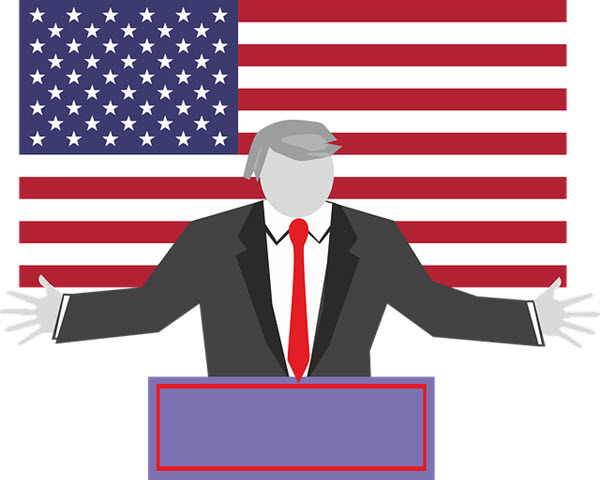How Cognitive Bias Played Into The Most Divisive Election Ever
By Brian Wallace
March 29, 2017 • Fact checked by Dumb Little Man

When you went to cast your ballot in the fall, did you think through every possible implication of your vote?
Chances are, if you are like most voters, your mind took some shortcuts. You liked one candidate over the other because that candidate agrees with you on your most important voting issue- so you didn’t stop to consider why that candidate may not best represent your overall beliefs and political views.
That’s cognitive bias. It’s a major reason why the election may have turned out the way that it did.
Any decision making process is usually cut short by your preconceived notions and personal experience. Instead of reasoning from a to b, b to c and c to d, your brain makes the process shorter by taking out some parts of the equation.
One good reason involves your past experiences. If your brain thinks that the process is similar to one of your past experiences, it skips the step-by-step process to make things faster and easier.
In addition to your experiences, factors, like social pressures, emotions, and factors, can also affect your decision making.
There are studies that suggest how physical appearances affect elections. It turns out that “looking competent” is a good indicator of whether you will able to win in a senate race or not.
One study had participants rank senatorial candidates by how competent they looked. Its findings concluded that two thirds of them accurately chose the winner based on looks.
Cognitive Bias And The Competent Look
Politics seems like a pretty important thing to leave up to physical characteristics. However, there are reasons why our brains inevitably do these things. One good reason involves our tendency to lean more towards people who are taller for they signify strength and higher social status.
Politicians are aware of these biases and spend a lot of time and money playing into them. Everything they do is carefully rehearsed so that they’ll look as the most competent choice.
They way they hold their hands when they talk and which direction they look are all carefully and strategically planned.
They also read the current zeitgeist of political affairs to determine what issues to play up and what issues to leave alone. Major political themes that affected the 2016 election included:
- Economic fears – the trade deficit, unemployment and underemployment, jobs
- Immigrants – legal or illegal, crime, building a wall
- Healthcare – rising costs, penalties, perceived lack of freedom or choice
See Also: How to Overcome Gaps in Employment
Even when media outlets were reporting the same facts, they were interpreting them in completely different ways. This led to an echo-chamber effect.
This affected how many media outlets interpreted polling data, leading to a bias in reporting. No one questioned the polling data when it showed that Trump was falling behind. A lot of people thought that his footage bragging about committing sexual assault would end his Presidential bid.
In reality, polling data could have been skewed by people who didn’t want to admit that they had no problem electing someone who bragged about sexual assault.
Pundits and pollsters were shocked on election night and were left wondering how Trump won. It all goes back to cognitive bias in its many forms. Preserving freedom at all costs appeared to be the motivating factor in this political upset.
This infographic will help you understand how cognitive bias may have played into the recent Presidential election and how Trump won.
Brian Wallace
Brian Wallace is the Founder and President of NowSourcing, an industry leading infographic design agency based in Louisville, KY and Cincinnati, OH which works with companies that range from startups to Fortune 500s. Brian also runs #LinkedInLocal events nationwide, and hosts the Next Action Podcast. Brian has been named a Google Small Business Advisor for 2016-present and joined the SXSW Advisory Board in 2019.


![How Did Trump Win the Election [Infographic]](http://psydprograms.org/files/2014/02/how-trump-won-election.png)
